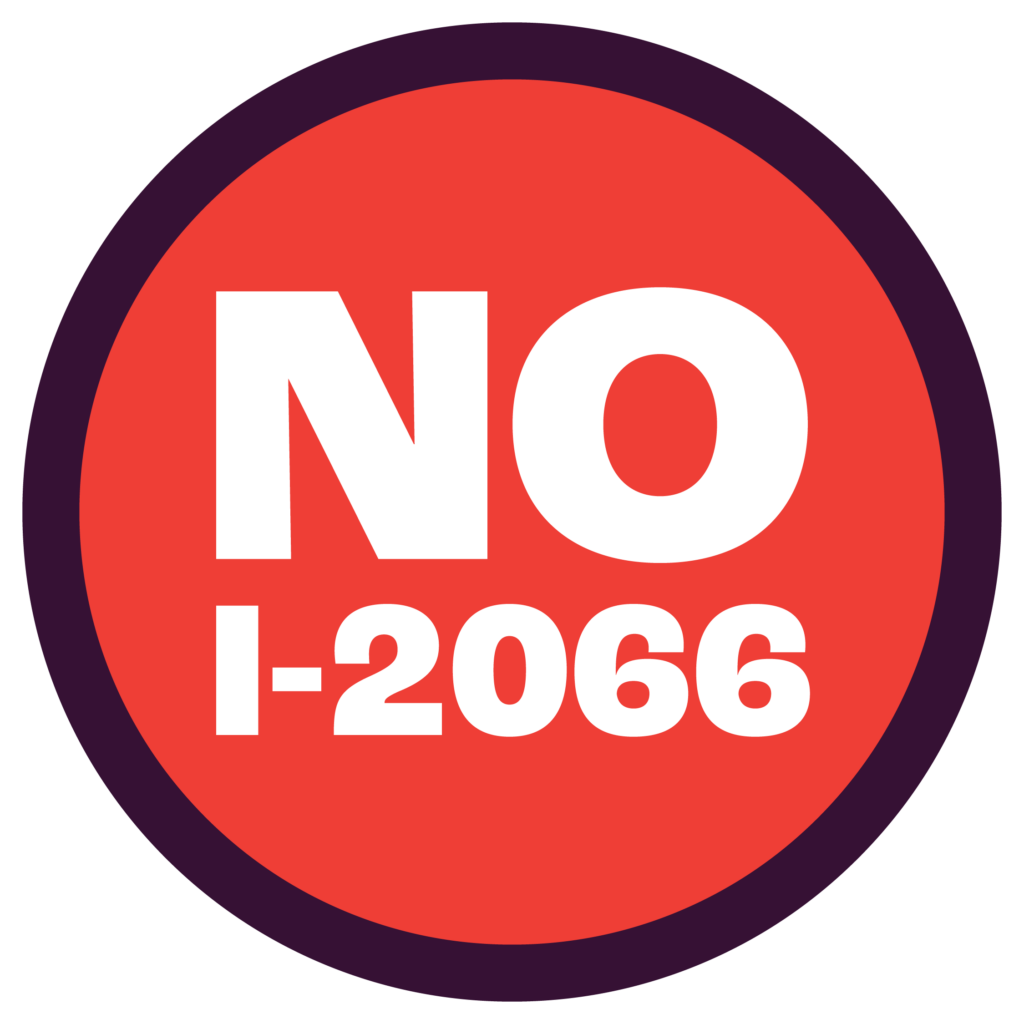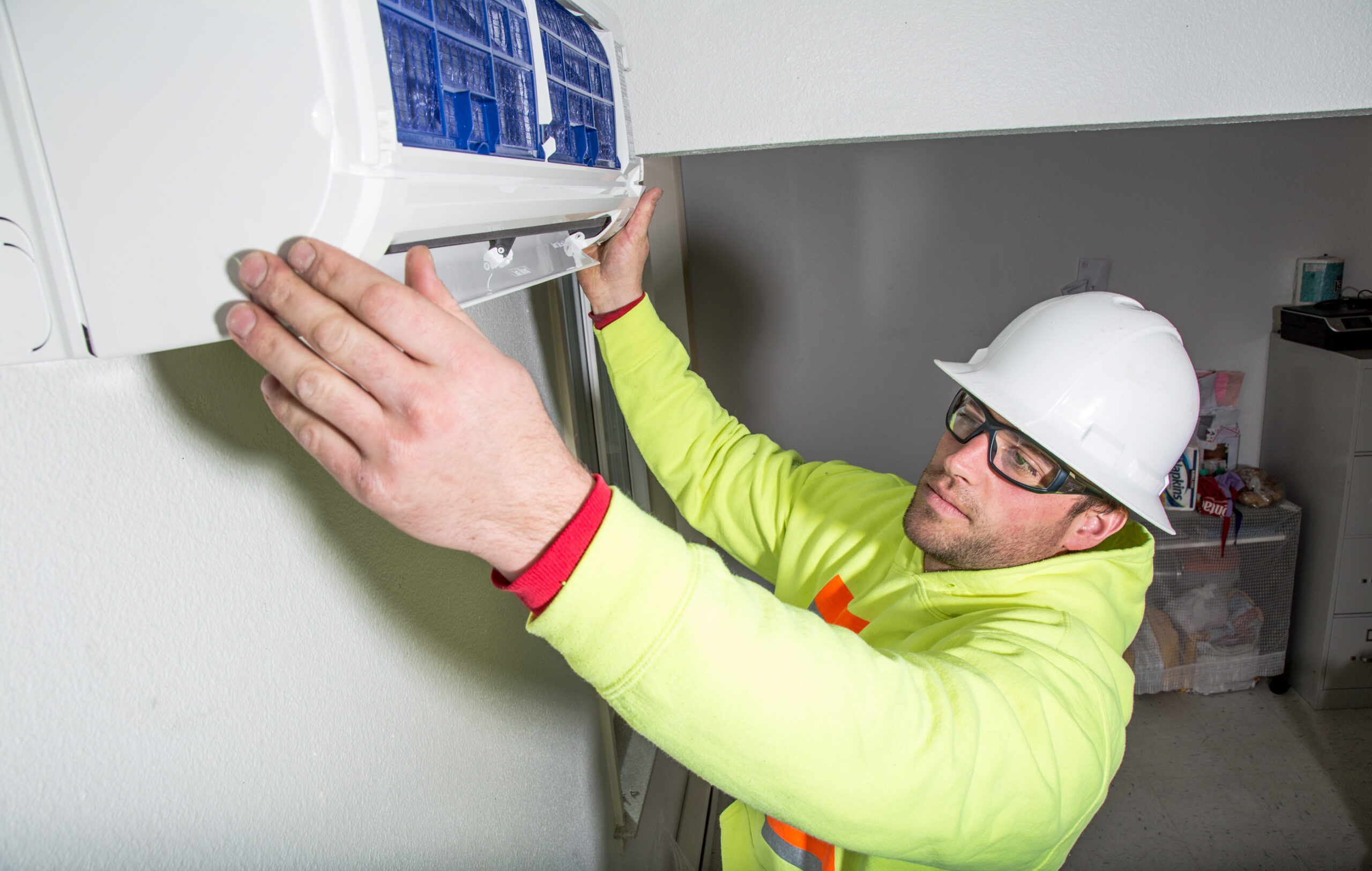Press contact
press@no2066.org, (425) 890-9744
Leaders of organizations that help low-income Washington residents access money-saving home upgrades are speaking out about the harms that Initiative 2066 could do to energy efficiency programs in the state.
The industry-backed Yes on 2066 campaign has falsely claimed in the media and on their web site that I-2066 would not impact existing energy conservation and efficiency programs. These popular programs have supported thousands of low-income Washingtonians in upgrading their home appliances to ultra-efficient electric heat pumps in recent years, helping people save on their monthly energy bills.
But the text of I-2066 includes multiple changes to state law that would threaten the legality of these existing programs. It could also forbid similar future programs, making it illegal for governments to help people access heat pumps — the most energy efficient home appliances on the market, which also double as air conditioners that keep homes safe during heat waves and wildfire smoke.
Sections 9, 10 and 11 (page 21 in the initiative full text) stipulate that cities, counties and regional clean air agencies “shall not in any way prohibit, penalize, or discourage the use of gas for any form of heating, or for uses related to any appliance or equipment, in any building.” Given that electricity and gas are the two primary methods for providing space and water heating in buildings, any existing electrification incentives (such as subsidies and rebates for heat pumps) could be seen as “discouraging” the use of gas and be in legal jeopardy if I-2066 passes.
Programs at risk from I-2066 include:
- Any city or county program that offers incentives for electric heat pumps, including:
- The Energy Smart Eastside program, a collaboration between the cities of Bellevue, Issaquah, Kirkland, Mercer Island, Redmond and Sammamish that utilizes funding from the state’s Climate Commitment Act to help cover the upfront costs of heat pumps, and 100% of the installation costs for low-income households.
- This program has thus far helped 300 people upgrade to heat pumps, 66% of which have been low-income residents.
- Energize Olympia, which offers no-cost heat pump installations for income qualifying households, and discounts for other households.
- The King County Energize Program, which covers 80-100% of the cost of new heat pumps for low-income residents with a goal of reaching 120 households in Skyway and White Center.
- As of June 2024, 45 households have already received installations or are in process, and an additional 70 have applied.
- The Seattle Clean Heat Program, which provides an instant $2,000 rebate for households to switch from oil heat to an electric heat pump, in addition to no-cost conversions for income-qualified households.
- South Whidbey Island’s Kicking Gas campaign, which offers 20-50% savings off the total heat pump installation cost and technical support and resources throughout the assessment and installation process. The program reached its goal in June 2023 of installing more than 100 heat pumps in South Whidbey homes.
- The Energy Smart Eastside program, a collaboration between the cities of Bellevue, Issaquah, Kirkland, Mercer Island, Redmond and Sammamish that utilizes funding from the state’s Climate Commitment Act to help cover the upfront costs of heat pumps, and 100% of the installation costs for low-income households.
- Federal funding in the Inflation Reduction Act for new electric appliances, including:
- $84.9 million from the IRA’s Home Energy Rebates program, which offers rebates for low- and moderate-income homeowners for electrification.
- Over $42 million in Climate Pollution Reduction grants for electrification and efficiency upgrades for affordable multifamily housing, daycare, municipal, and nonprofit buildings in King, Snohomish, Kitsap, and Pierce Counties.
- Almost $40 million in funding from the state’s Climate Commitment Act that is helping support electrification across the state, reaching 32 different cities and counties.
- $5,336,909 to Snohomish County PUD
- $4,160,788 to City of Ellensburg
- $3,181,094 to City of Seattle
- $3,151,090 to Energy Smart Eastside
- $2,596,641 to King County
- $1,940,490 to City of Tacoma
- $1,833,490 to Pierce County Human Services
- $1,565,649 to Spokane County
- $1,543,466 to Cowlitz PUD
- $1,501,126 to Mason PUD 3
- $1,321,551 to City of Vancouver
- $1,317,042 to City of Bellingham and Whatcom County
- $1,100,000 to Grant County Public Utility District #2
- $1 million to Yakima County
- $1 million to City of Chewelah
- $ 575,000 to City of Airway Heights
- $481,483 to City of Olympia
- $477,555 to City of Lacey
- $477,540 to City of Tumwater
- $472,263 to Thurston County
- $471,482 to Clark Public Utilities
- $468,653 to Jefferson County PUD
- $426,146 to Clallam County PUD
- $200,000 to PUD No.1 of Klickitat County
- $95,009 to City of Tenino
- $91,476 to City of Bainbridge Island
- $25,000 to Town of Steilacoom
These kinds of impacts are why city leaders in Kirkland and Vancouver have passed resolutions opposing the initiative, and with 52 state legislators and members of the King and Pierce County councils have endorsed the No campaign. Advocates for communities living on low incomes like the Statewide Poverty Action Network, the Anti-Hunger & Nutrition Coalition, and labor unions that represent working class Washington residents such as United Food and Commercial Workers 3000 and Washington Education Association have endorsed the No campaign as well.
“I-2066 would threaten popular programs that offset costs for families seeking healthy ways to heat and cool their homes. Without these programs, energy efficiency improvements would be out of reach for most people. Reducing access to these kinds of upgrades is a step in the opposite direction of where we need to go,” said Andrea Axel, Executive Director of Spark Northwest
“No one should have to choose between paying an energy bill and putting food on the table, but that is the reality right now for thousands of Washington residents. I-2066 would threaten commonsense energy efficiency programs that help people living on low incomes reduce their monthly energy bills and save money,” said Lianna Kressin, Interim Executive Director of Statewide Poverty Action Network
“Big fossil fuel corporations and venture capitalists are bankrolling I-2066 to increase private profits, while rolling back critical efficiency programs that help working people save on their energy bills. For folks living paycheck to paycheck, energy efficiency programs can be the difference between keeping the power and the rent paid, or being put out on the street. This initiative is designed to do one thing: help the rich get richer at the expense of Washington residents,” said Larry Delaney, President of the Washington Education Association.

